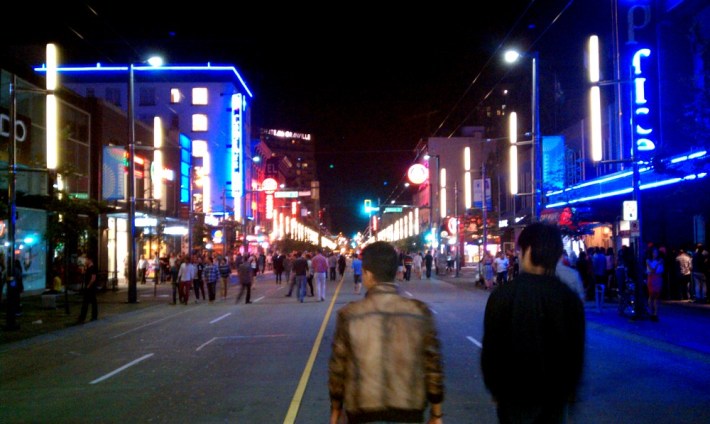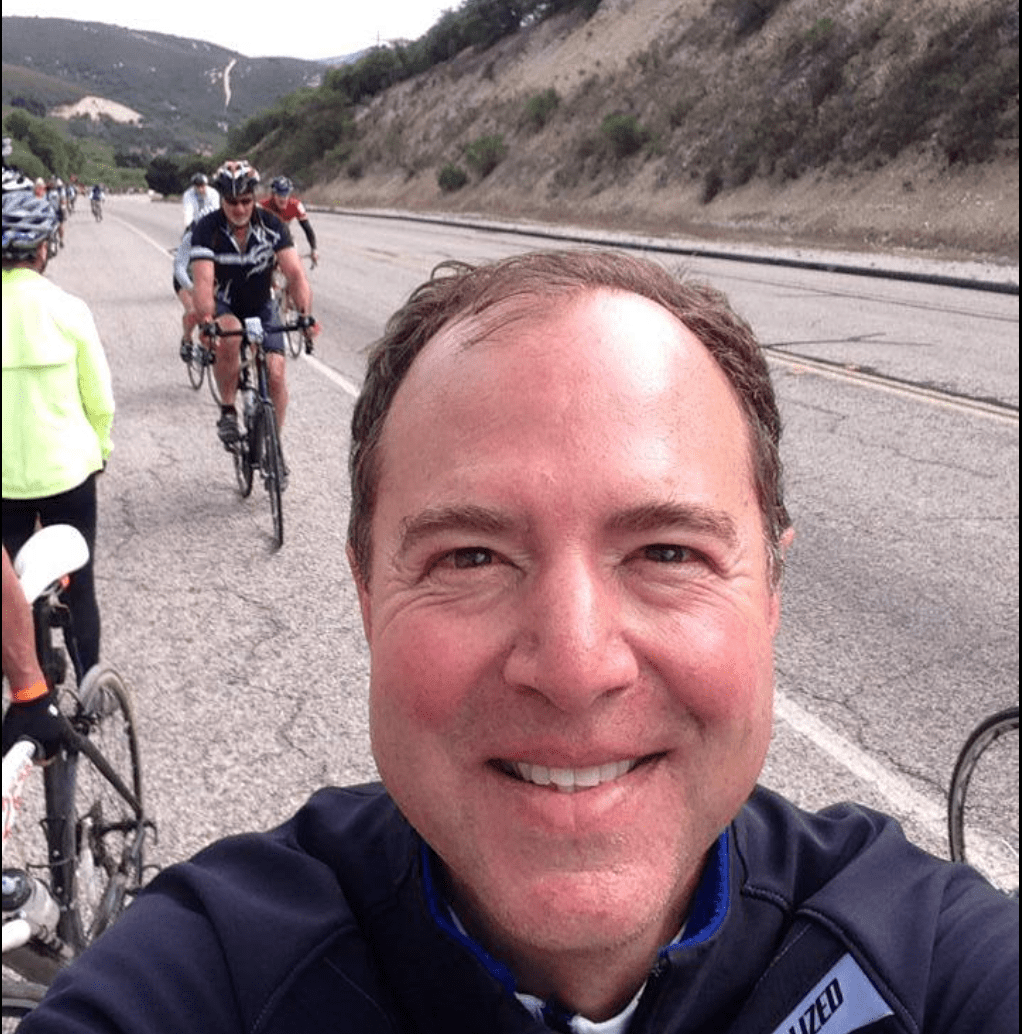Should SF Streets Go Car-Free to Make Room for Nightlife?
6:04 PM PST on February 24, 2015

Polk, Valencia, Castro, Broadway -- when bar patrons crowd these streets at night, should they go car-free?
While the idea may be novel to San Francisco, many other cities have done it. Up the coast in Vancouver, British Columbia, downtown Granville Street is often closed to cars on bustling weekend nights for people to roam the roadway, extending the street's permanent pedestrian mall, which is several blocks long.
In a new report [PDF], city agencies recommend taking a look at nighttime car-free hours to improve streets for patrons and workers.
"Streets are the living room of our cities, where people meet, interact, and socialize," said Supervisor Scott Wiener, who requested the report. “We should consider opportunities to foster these urban connections for the sake of supporting nighttime activity and advancing pedestrian safety.”
"So many of the events that really define San Francisco, both for locals and visitors, are events that happen when the streets are shut down and the people are in them," said Tom Temprano, owner of Virgil's Sea Room bar on Mission near Cesar Chavez Street, and a member of the city's Late Night Transportation Working Group, which developed the report. "From Sunday Streets, to Pride, to Folsom Street Fair, to Bay to Breakers, these are all really events that are core to San Francisco's identity and happen when we take cars off the road and let people have a good time."
Sunday Streets, a daytime event, has proved especially popular on Valencia Street in the Mission, which also bustles with bar-goers on weekend nights. Why not provide a safe environment for nighttime crowds bursting off the sidewalks, rather than let the street be clogged with cars?
The report, which was developed by the SF County Transportation Authority and the Office of Economic and Workforce Development, states:
In commercial corridors with vibrant nightlife, pedestrian safety and comfort may be a challenge at closing time, when large numbers of patrons -- many of whom will have, no doubt, been drinking -- simultaneously exit multiple venues, crowding onto often narrow sidewalks. Cities such as Austin, Texas, and Vancouver, British Columbia, have used temporary late night street closures as a strategy to improve pedestrian safety in particularly active corridors.
One complication of closing streets to vehicles is that it would require a detour for Muni lines, including electric trolley buses such as the 24-Divisadero on Castro Street. But Vancouver's Granville has electric trolley bus lines on it, and the city seems to manage.
Temprano said re-routing transit "could be tough" on some streets, but that it could be worth it.
"With the risk that all of these cars on the road pose to the increased pedestrians and street activity that we have at these times, I think it's worth moving the buses a block over," he said, noting that there seems to be a particular danger from the many bar patrons who drive in from out of the city and are unfamiliar with the streets. "We're seeing an increase in vehicle-to-vehicle collisions that happen at night in our city."
"Anything that gets San Francisco closer to Vision Zero is a step in the right direction," said Temprano.
At this point, the idea of pedestrianizing streets at night is only a recommendation, and doesn't have any timeline or funding set for it.
Nicole Schneider, executive director of Walk SF, pointed out that "if paired with access to reliable late night transit, as described in the plan," pedestrianized streets would be "a great example of discouraging drunk driving, and promoting a safer San Francisco for everyone."
Read More:
Stay in touch
Sign up for our free newsletter



